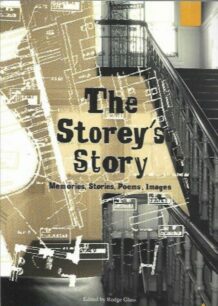Places of Poetry Northwest
Welcome to Places of Poetry — Northwest
Our local celebration of the national Places of Poetry project by Andrew McRae and Paul Farley. The map below is full of poetry from Lancaster and the surrounding area, ranging from South Lancashire to the Solway Firth and from Blackpool to the Trough of Bowland. Enjoy!
Submit Your Poem
Winning Poems
Six of the Best
Alongside the Litfest ‘Places of Poetry’ event in May 2021, Paul Farley and Andrew McCrae selected six of the poems on the Litfest Places of Poetry map, which were read out by their poets as part of the event. You can read all of the selected poems below.
Hung between stone monoliths
framing a postcard view
it marked the limits of our territory.
At six I swung, forbidden
wedging my toe-caps in the sheep wire
nailed to the wood, watching
my father and his circling dogs
driving them in across
the nape of the fell
ready to hitch and drag it open
at his whistle.
Taller, I climbed it
racing for the ridge
through fox-coloured tussock grass
and nesting curlews
avoiding the green mires
deep enough to drag a horse down;
warned against abandoned mines,
houses with eyeless lintels
and the ghost of Sworley
wife-murderer,
who hanged himself in the barn.
Now, with the farm empty
the gate dislocated from its hinges
and the fields tussocking over
with rush and gorse, I pass
through its open cromlech
into a tourist’s landscape.
Still able to feel
the hitch and drag of it
in my hands,
strong enough to pull
a whole life down.
It spell checks as ‘linemen’, this word
whose east-west tracks I followed
over the Pennines, upstream
on the Tyne, down to the fells’ edge
where the old sound lingers on:
Hazlerigg Lonnen, Pasture House Lonnen.
A lane, a track, walled or hedged,
linking places with its sense of purpose.
The maps use other terms
or don’t even name the routes.
I have only found it spoken:
Yetland Lonnen, Silver Lonnen.
But it has always belonged to others –
to my gran with her ‘hinny’, her ‘bairn’, her ‘lonnen’ ;
now to the farmers turning their cows
down the lonnen. To my daughter
and her earliest steps on the lonnen.
After all these years the word is strange
in my own mouth, but I walk daily
along the timeworn ways, out
from my home and back, mud on my shoes.
For the Lake Poets
Night falls around midday.
Some time later, we run a fire
and stoke mulled wine, run to
the lakehead in the morning.
Rainfall spits without the monsoon.
Tesco Express runs prices
higher than Helvellyn, like
every major who’s ready to see
Coleridge and Wordsworth
unwinding futures before them.
The fog, the boggy shitshow marsh.
The fells, heather-soaked carpets
unrolling from cairn to gate. It’s too
easy to miss wanton mee when
drinking leek & onion soup.
Like any good Singaporean, I think
about forgiving didactic poets who
render the light on the valley in
kaleidoscopes inferior to home, but I
do not want to lie to my mother again.
(For S)
I saw a woman on a bike
with a shovel strapped to her back,
and a small Christmas tree. She was heading up the hill.
I actually saw her twice,
and I don’t think it was the same tree.
I drew my own conclusions.
I saw the man who speaks to himself,
always walks fast; he nods to me,
now I’m becoming a fixture.
I saw the red faced bloke in shorts
walking off his heart attack;
twice up, twice down. Same every day.
I saw the sun on the distant bay
and the town, swallowed by fog
and the rain, coming in curtains over Heysham.
And then I saw you, from far away,
pushing your bike slowly up the hill,
taking your own sweet time, and I thought,
life keeps throwing things at you, and I love,
I love the way you are steady under fire,
Steady, even on this hill. How you just keep going.
Back to grass and heather. The hum
of masonry bees vibrating in their
honeycombed brickwork remnants.
Hidden undergrowth fed on ashes.
Here, a hunter once crouched
in their furs in the long grass,
watching the sedate grazing
of their next rabbit-skin hat.
Here, a monk once set down
his wandering staff, bricked
the world into windows, panes
of glass arching heavenwards.
Here, a man made a manor
of a monastery, rented out
the choral echoes of inherited
nobility, to trade and railways.
Here, they sent the orphaned
or unwanted, the short-trousered
progeny of parents on a budget,
for Latin, Greek and arithmetic.
Here, the army stored their secrets,
then forgot to post a guard. Lost
the lot to trespassers five years later,
ten-year-old Tom with dad’s lighter.
Here, half the roof peeled open
in a storm, like a ring-pull can lid.
The council puts paid to the walls
with a wrecking ball next winter.
Here lies Tulketh, interred in
Avenue, Brow, Road, Crescent.
Foundations’ bones tarmacked
under a car park’s cracked skin.
Bookshop
Featured Authors



